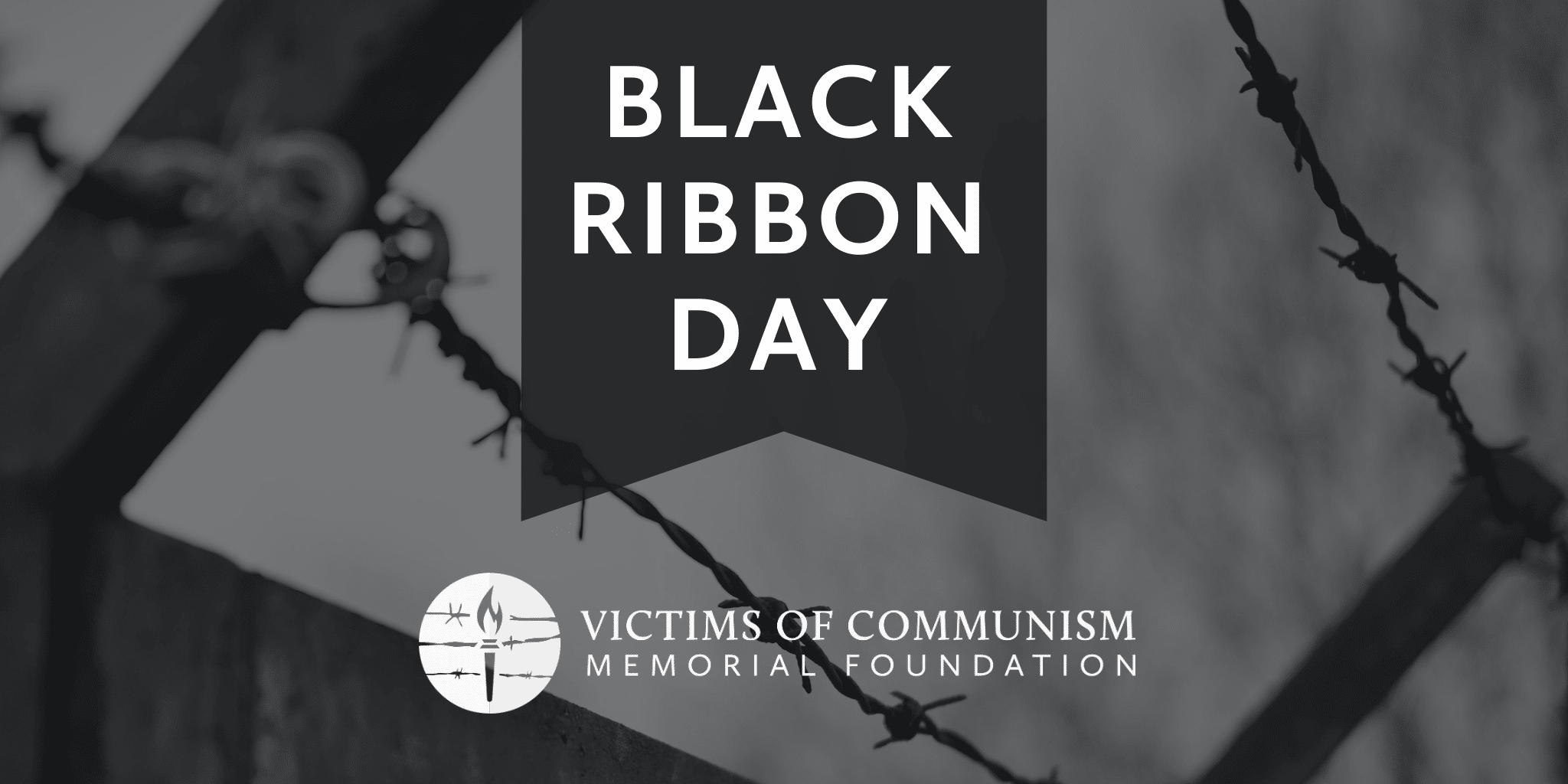Black Ribbon Day, Remembering the Victims of Nazi and Soviet Crimes

WASHINGTON, D.C. — On this day, 81 years ago, Nazi Germany and the Soviet Union signed a pact of non-aggression. “The Molotov-Ribbentrop Pact and nearly two years of cooperation between Nazi Germany and the Soviet Union during World War II demonstrate that the twin ideologies of both national socialism and international socialism view democracy and freedom as their natural enemies,” said Victims of Communism Memorial Foundation Executive Director Marion Smith. The Third Reich was eventually defeated, but the reign of Soviet terror continued and expanded.
As people began to flee the Soviet Bloc, refugees in the West inaugurated “Black Ribbon Day” on August 23 as a way to bear witness to the perils of the deadly ideologies of fascism and communism. It soon became a symbol of resistance behind the Iron Curtain. On August 23, 1989, two million Lithuanians, Latvians, and Estonians joined hands in a human chain across the Baltics to stand resolute against the brutal Soviet regime. Known as the Baltic Way, this protest was a defining moment in the Captive Nations’ fight for independence and a key event leading to the collapse of the Soviet Union. We are seeing similar demonstrations today as the people of Europe’s last dictatorship, Belarus, are calling for an end to the unfinished business of regime change. They’re calling for freedom and democracy.
On Black Ribbon Day, VOC remembers those who experienced unspeakable suffering due to Nazi and Soviet crimes, and we hope for the freedom of those still oppressed within totalitarian regimes today.
Victims of Communism Memorial Foundation is an educational, research, and human rights nonprofit devoted to commemorating the more than 100 million victims of communism around the world and to pursuing the freedom of those still living under totalitarian regimes.
###
For further information or to set up an interview with Marion Smith, please contact Emily Stewart or call (202) 629-9500.

